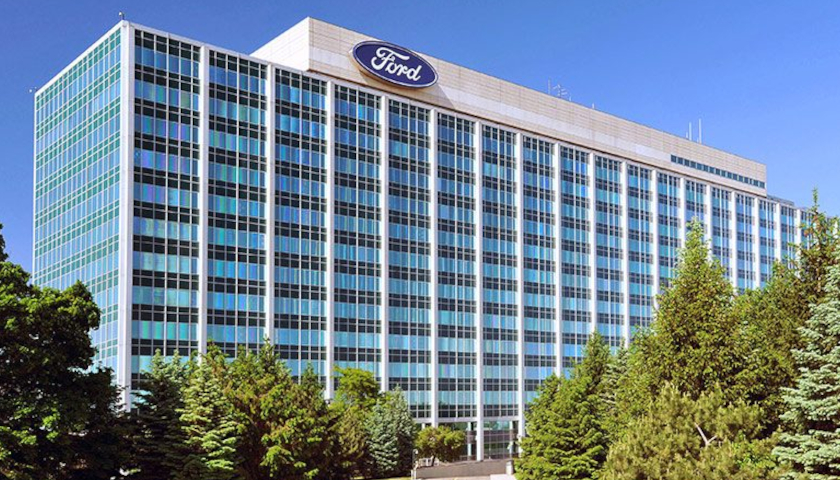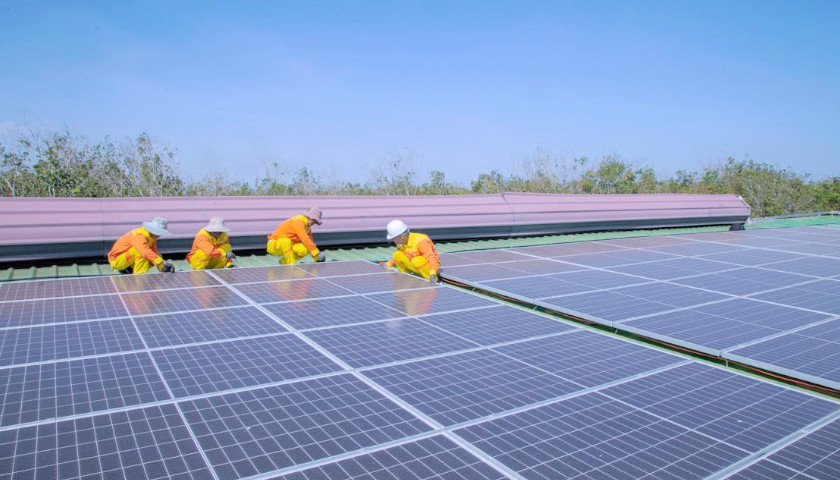by Scott McClallen
Since the pandemic began, Michigan has embarked on an “unsustainable” spending spree, says James Hohman, the Director of Fiscal Policy at the Mackinac Center for Public Policy,
“Michigan lawmakers will spend every dollar that they receive in revenue and state taxes have increased faster than residents’ ability to pay since the pandemic began,” Hohman said in a statement. “This is fundamentally unsustainable and lawmakers should practice restraint. Spending less would protect taxpayers, stabilize the budget and ensure that lawmakers have flexibility to meet unexpected needs.”
Hohman said Michigan’s five newly created agencies since 2020 aren’t as consequential as “the sheer spending.”
“Spending more than $2 billion on pork projects is worse than dividing spending up into different offices,” Hohman said.
He is referring partly to a $715M subsidy to Gotion’s electric vehicle plant near Big Rapids and a $1.75B subsidy to Ford Motor Co.’s EV plant that aim to make Michigan a leader in the EV transitions. Michigan has fallen 1.9M EVs short of reaching its 2030 target goal.
After a record $82 billion in the 2024 budget, Michigan has only $250 million or 2.7% left of the state’s $9 billion surplus. The state’s Budget Stabilization Fund, or rainy day fund, brings the balance to nearly $2 billion by the end of fiscal year 2024.
Gov. Gretchen Whitmer posted on social media that the spending and agencies will help Michigan families.
“When Michigan families thrive, Michigan thrives,” Whitmer said. “We’re taking concrete steps to lower costs in Michigan. From health care to education, from housing to utilities, we’re working hard to ensure you have more money in your pocket.”
The second-term governor has expanded the government through The Office of Future Mobility and Electrification, Michigan’s High-Speed Internet Office, The Office of Rural Development, The Michigan Department of Lifelong Education, Advancement, and Potential, and Michigan’s High-Speed Internet Office.
For example, the latest budget will hire 899 people.
The National Association of State Budget Officers says Michigan’s total expenditures in fiscal year 2022 were $86.2 billion, including general funds, other state funds, bonds and federal funds.
The US Census Bureau says Michigan’s combined state and local direct general expenditures were $97.9 billion in FY 2021 or $9,750 per capita.
Michigan promised $1.75 billion for Ford’s electric vehicle battery plant that slashed $1 billion in planned production and cut 800 promised jobs.
The subsidy included $630M in site infrastructure development, $772M in tax credits over 15 years through the Michigan Strategic Neighborhood Fund, a $120M grant through the Michigan Strategic Site Readiness Program, a $210M grant through the Michigan Critical Industry Program and $36M through the Jobs for Michigan Investment Fund Loan Program.
For context, $1.75 billion is:
- More than Michigan paid in unemployment benefits to every unemployed person in 2021.
- Four times more than all Michigan homeowners combined were able to deduct in homestead property tax exemptions in 2021.
- More than a year’s worth of state government revenue sharing with the state’s municipal governments.
A Consensus Revenue Estimating Conference will convene at 9 a.m. on Jan. 12 in the House Appropriations Committee Room in the Capitol to present economic and revenue forecasts for fiscal year 2023-24, fiscal year 2024-25 and fiscal year 2025-26.
– – –
Scott McClallen is a staff writer covering Michigan and Minnesota for The Center Square. A graduate of Hillsdale College, his work has appeared on Forbes.com and FEE.org. Previously, he worked as a financial analyst at Pepsi. In 2021, he published a book on technology and privacy. He co-hosts the weekly Michigan in Focus podcast.
Photo “Gretchen Whitmer” by Gov. Gretchen Whitmer.








